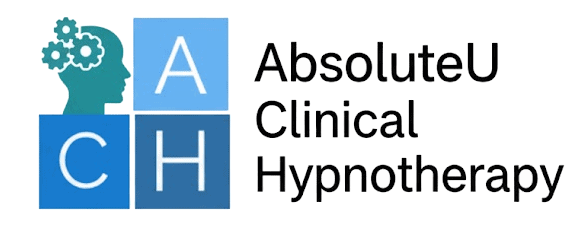Mental Health Help
In today’s fast paced world many people experience periods of stress, anxiety, or low mood that can grow into more persistent challenges. Seeking mental health help is not a sign of weakness, it is a step towards balance, understanding, and the kind of emotional wellbeing that lets you live more fully. Although public conversations about mental health have improved, it is still common to feel isolated or unsure where to turn when life feels overwhelming.
At AbsoluteU Clinical Hypnotherapy in Horsham I work with clients of all ages who describe a familiar pattern. The mind feels busy, the body feels tense, and despite best efforts it is hard to explain to others what is happening inside. The first step is being heard. With practical support and a kinder way of working with your mind, mental health help can guide you back to steadiness, clarity, and confidence.

You do not have to go through this alone. With the right approach the mind can learn to feel safe again and daily life can become manageable and meaningful.
Understanding Mental Health
Mental health shapes how you think, feel, and act. It influences relationships, motivation, sleep, and even physical health. When emotional strain builds it can show up as restlessness, irritability, trouble concentrating, or a constant hum of worry. In children and teenagers it may appear as withdrawal, anger, or unexplained physical complaints such as tummy aches or headaches. These experiences are common and each is a valid reason to seek mental health help sooner rather than later.
Across the UK many people live with symptoms of anxiety, depression, phobias, obsessive thoughts, or post traumatic stress. Knowing that these challenges are widespread is not about labels, it is about recognising that support is available and effective. When we talk openly and seek help the path forward becomes clearer.
Common Signs of Emotional Strain
Mental and physical symptoms often overlap which can be confusing. You might recognise some of the following signs. If you do it is a good time to consider mental health help.
- Mental or emotional symptoms – Difficulty focusing, waves of fear, overthinking, irritability, tearfulness, a sense of dread, feeling disconnected, low confidence.
- Physical symptoms – Tiredness, changes in appetite, sleep problems, racing heart, digestive upset, shaking, sweating, tense muscles.
These signals are not personal failings. They are messages from your system that something needs care. Just as pain in a muscle asks for rest and treatment, emotional discomfort asks for understanding and support.
Why Asking For Help Can Feel Difficult
Many people find it hard to describe how they feel. You might worry that others will not understand or you may tell yourself that you should be coping better. You may also have tried to push through with willpower, new routines, or distraction. These can help for a short time but they rely mostly on the conscious mind. Real change becomes easier when the conscious and the subconscious mind work together.
When you seek mental health help you give yourself permission to be supported. You do not need the perfect words or the perfect plan. You only need to begin.
How Hypnotherapy Supports Mental Health
Hypnotherapy helps you access the part of the mind that stores habits, emotional memories, and automatic reactions. In a calm and focused state the mind becomes more open to positive suggestion and less resistant to change. You remain aware and in control while thoughts and feelings begin to move in a clearer direction.
When the subconscious understands you are safe it reduces protective signals that are no longer helpful. If you have been caught in cycles of panic, overthinking, or exhaustion, hypnotherapy teaches the mind to choose calm instead. With practice this new response becomes the default and the old pattern fades.
The aim is not to suppress emotion but to change your relationship with it. Rather than reacting with fear or avoidance you learn to meet challenges with steadiness, which reduces both mental and physical symptoms.
A Proactive Way To Heal
Working together we combine gentle relaxation, guided imagery, and simple cognitive tools to retrain unhelpful patterns. You learn to notice triggers, replace negative self talk with encouragement, and use visualisation to create a sense of safety and control. These skills are practical and can be used long after therapy ends, which is why seeking mental health help often becomes a turning point rather than a temporary fix.
Many clients discover that their difficulties were never signs of weakness. They were adaptations that once helped them cope. When the mind understands there is a better way it lets go of the old habit and embraces the new.
The Mind and Body Connection
Emotional stress activates the body’s protective system. Muscles stay tense, breathing becomes shallow, and digestion slows. Over time this is exhausting. One way that I provide mental health help with hypnotherapy is by helping the nervous system to learn to switch into calm more easily. Breathing slows, heart rate steadies, and sleep often improves. People describe feeling as if a weight has lifted, not because life has become perfect, but because they are no longer fighting themselves inside.
When the body settles the mind follows. This is why a combined approach that includes mental health help and gentle body calming practices can be so effective.
Small Steps That Support Mental Health
Recovery is a process. Alongside hypnotherapy simple daily actions help reinforce calm and confidence.
- Create moments of stillness – Sit quietly for a minute, breathe in for two and out for four, and let your shoulders soften.
- Prioritise sleep – Keep a gentle bedtime routine so your brain can process emotions more effectively.
- Connect with someone – Share how you feel with a trusted friend or family member to reduce isolation.
- Move your body – Gentle walking or stretching releases tension and supports mood.
- Reduce overstimulation – Take breaks from screens and news to give your mind space to rest.
- Notice small wins – Each calm response is evidence that change is happening. Acknowledge it.
These simple choices anchor the inner work. They remind your system that steadiness is available at any moment and that mental health help is an ongoing act of care.
A Hopeful Perspective
When you work with the mind rather than against it change becomes possible. Hypnotherapy bridges conscious intention and subconscious learning so both move in the same direction. Many clients rediscover calm after years of anxiety, sleep more soundly after months of restlessness, and reconnect with purpose they thought was lost. Each journey begins by reaching out for mental health help and choosing to believe that life can feel better.
You do not have to wait until things feel unmanageable. Support is available, practical, and effective.
A Gentle Invitation to Begin
If you are ready to feel calmer, clearer, and more in control I would be glad to help. Sessions at AbsoluteU Clinical Hypnotherapy in Horsham are gentle and tailored to you. Together we will build skills that continue to support you long after therapy has ended.
Mental health help is not about becoming someone else. It is about rediscovering your natural capacity for balance and resilience and allowing that to guide your life.

